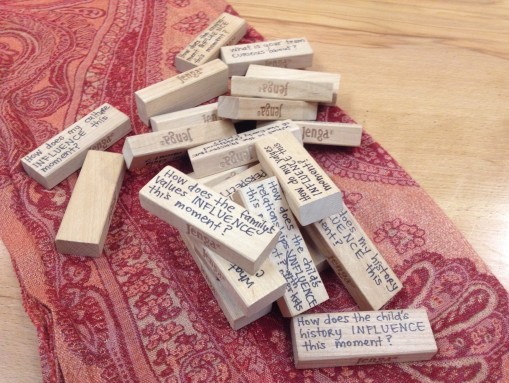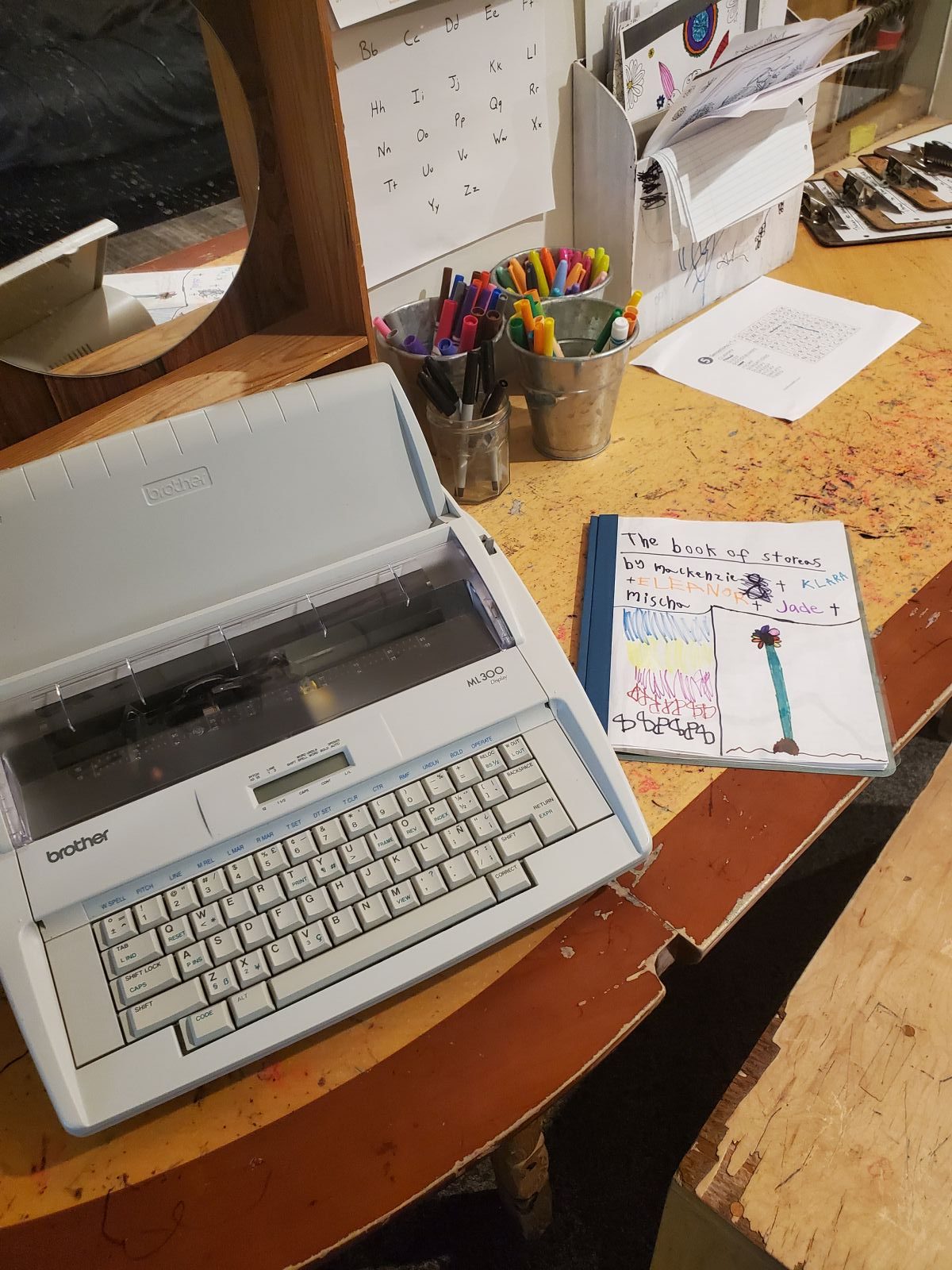
Literacy Ideas for Home
Literacy is more than just learning how to read. It consist of reading, writing, creating, and other forms of emergent markings that represents their thoughts and ideas. Children as young as 2 years old begin to imitate the act of writing and if we build on children’s experience as they grow, they’ll not only just learn how to read, write and create but they’ll love to do it!
“We live in a culture which worships the written word” says Mike Browne (he/him), Community Engagement Manager at Hilltop. “That stems from the Characteristics of White Supremacy Culture by Kenneth Jones and Tema Okun, and has infiltrated our early education system. As an Afro-Caribbean, my culture leaned more on oral traditions than writing. And when we did write, it was more about creating than sentences. So while writing is vital, let’s remember that there are other ways we build and share knowledge and work to recognize the contributions and skills that every child and adult brings, even if it’s not done with the dominant form of communication you’re accustomed to.”
“The goal is to support the child and make sure that they are valued, visible, and validated” echoed Nick T. (he/him), Educator and podcast host at Hilltop. “Sometimes, that means we adults need to find alternative ways to support children in the ways they want to express themselves or in their language acquisition, or how they master print concepts. Same thing goes for their guardians. We need to understand how they learn and then find alternative ways to document what is happening for them. To authentically and effectively build strong literacy foundations, we have to think beyond paper and pen.”
Building Language and Literacy Through Play:
Summary of ideas:
10 Little Rubber Ducks: In this idea, there are a series of activities such as writing, decorating, and crafts, to name a few, that combines allows you to combine environmental justice lessons with science, literacy, and of course, your children’s imagination!
 There are multiple ways that children learn. We can connect literacy skills (and other subjects) to activities that will appeal to your children based on their particular strengths.
There are multiple ways that children learn. We can connect literacy skills (and other subjects) to activities that will appeal to your children based on their particular strengths.Summary of ideas:
We hope you enjoy these activities as much as our community did! These preschool literacy activities will keep little ones busy, ignite their curiosity, develop their problem-solving capacities, and teach them the basics that they’ll need to succeed throughout their life.
Looking for additional learning opportunities? Check Out Our Educator Discussion Series, including our next virtual learning workshop:
- No Walls, No Problem! Addressing the Barriers to Taking Learning Outside
Thursday, July 9th, 2020
5:00pm – 6:30pm PST (8:00pm – 9:30pm EST)
This workshop is geared towards educators, parents/relatives, interested professionals, policy-makers and more!
Register at: https://hilltopcc.com/outdoors
Missed it? This session is recorded. Contact us at institute@hilltopcc.org
What’s better than one male educators of color? Two! Check out Hilltop’s brand new podcast called “Napcast” which features Mike Browne (he/him) and Nick Terrones (he/him). This podcast is designed to help you learn on the go, hear another perspective, spark debate and honestly, remind you that you’re not alone. We live in a complex world, so allow us to challenge your orientation with words, thoughts, advice, and the perspective of two early childhood educators of color. Visit Napcast to tune in now and check out the rest of our professional development offerings including Hilltop Study Days and Study Tours to New Zealand.Feel free to email us at institute@hilltopcc.org.